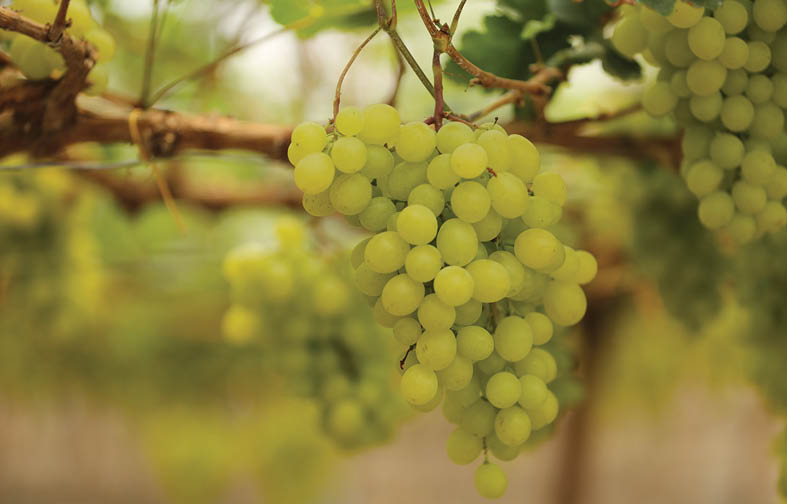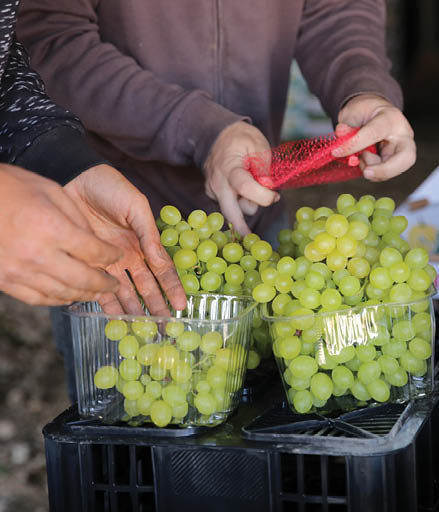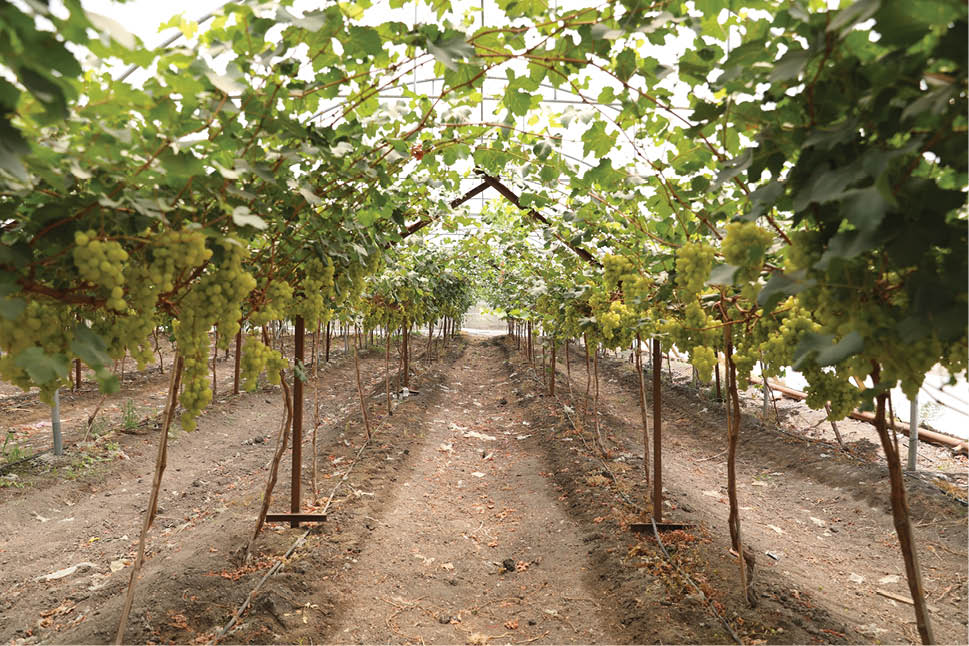Having once contributed over 13 percent to the Palestinian GDP in 1994, the Palestinian agriculture sector subsequently faced several impediments and challenges that reduced its contribution to a mere 3 percent in 2016. The Palestinian Central Bureau of Statistics (PCBS) estimated Palestinian annual imports of agricultural and food products in 2018 at around US$1.48 billion, 70 percent of which came from Israel. Fruit and vegetable imports amounted to around US$206 million, and animal fodder to US$250 million. Overall, Palestine imports of food and agricultural products are 5.7 times its exports, and the largest trade partner is Israel. This is very much in line with the overall status of the Palestinian economy, which currently imports more than five times its exports. PCBS also reported that in 2019, the agriculture sector employed only 6.7 percent of the Palestinian workforce or 67,670 workers. While the numbers of informal workers may well be much higher, the percentage has still gone down from 11.5 percent in 2012.

Several factors have caused the decline of the agriculture sector and its role in the Palestinian economy, and they continue to impede the sector’s development: The scarcity of land poses an increasing problem that is mainly due to Israeli restrictions on Palestinian access to the so-called Area C. These impediments have made it difficult to invest in agriculture because development projects face the risks of confiscation and lack of permits to build the needed infrastructure.
Another reason for the reduction in agricultural production in Palestine is fragmented land ownership (mainly due to social, economic, and natural factors). This condition furthermore pushes farmers toward avoiding the risks that are necessary to scale up and implement agricultural innovation and achieve economies of scale.
Moreover, and importantly, the prevailing restrictions on access to water, as well as its high cost, hamper the efficiency, diversity, and scale that is required for farmers who wish to strike competitive deals in both the short and long terms. The Oslo Accords allocated to Palestinians only one quarter (138.5 mcm) of the water provided by the three West Bank aquifers.
Palestinian GDP could be expanded significantly: according to the World Bank, we could face an increase of over 7 percent compared to the 2011 GDP with free access to the 326,400 dunums of arable land and rangeland located in “Area C” along with their water resources.
In addition, a lack of modern agricultural practices, Israeli restrictions on the utilization of high-quality and effective fertilizers, the lack of market-reach for small farmers, and the high cost of labor and logistics are among the many other factors that stifle investment and growth in agriculture.
In order to strengthen the sector, substitute imported products, and reach the global export markets, Palestinian agriculture needs to meet requirements in four main areas: product quality, scale, price, and consistency. The challenge to meet these requirements under the prevailing conditions is not easy, but neither is it impossible! The underlying risks and burdens associated with the complex impediments can be shouldered through an innovative, systematic, collaborative, and patient approach in line with the National Agricultural Strategy adopted by the Ministry of Agriculture.

First of all, the Palestinian government and civil society should continue to exert all necessary efforts to restore Palestinian legitimate rights to access all natural resources on the 60 percent of the West Bank that has been designated “Area C.” Relevant economic agreements with Israel should be revised to reflect these rights under international law. Restoration of access is a top priority if we wish to achieve effective economic development through agriculture. Local efforts by the marginalized communities that live in this area to build their lives and survive must be supported by governments and organizations striving for the achievement of human rights worldwide. Donors, in particular, should be directed to target agricultural communities and businesses in “Area C” in order to mitigate their risks of living, investing, and thriving in these risky localities.
Palestinian efforts to increase the market share of Palestinian agricultural products, both locally and internationally, must center on product quality, scale, price, and consistency.
In addition to relying on natural water resources, Palestine is also increasingly treating greywater through several wastewater treatment plants across the West Bank and Gaza. The bill for dumping wastewater, including treated wastewater, into Israel currently costs the Palestinian budget over 100 million shekels per year. With three treatment plants already operational in Jenin, Nablus, and Al-Bireh, another plant about to become operational in Tayaseer, and two planned in Hebron and east of Nablus, the West Bank could potentially produce over 50,000 cubic meters per day and irrigate over 20,000 dunums to cultivate high-value crops and animal feed. To date, the reuse of the treated water has been limited to Jenin and some demonstration usage in Nablus. While the main impediment to full utilization of this water remains with the Israeli government, as it requires infrastructure access in “Area C,” there are several other legal and operational inter-ministerial impediments which, once sorted out, could lead to a major breakthrough in this sector.
The fragmented ownership of agricultural land, due to inheritance practices and the lack of Palestinian protective laws against fragmentation, cannot be easily undone. Land could be aggregated indirectly, however, through the establishment of an aggregator body that would act as a catalyst for small farmers. The aggregator would work to solve three main issues. The first is scale, which could be tackled through large-capital investment in infrastructure, employing working capital, and working with a large number of small farmers. Quality could be improved by deploying high-end, innovative extension services to farmers and establishing brand equity for high-quality and safe Palestinian fresh produce. Market access could be achieved and improved by a professionally trained team that would help look for market opportunities to substitute imports and engage in export to regional and international markets through long-term contracts. Though largely inaccessible, land in “Area C” should be thoroughly scanned and assessed to identify pockets of underutilized lots that could be cultivated. These lots could be either adjacent to infrastructure in “areas A and B” or located in areas where cultivation has been taking place without difficulties.
The introduction of cutting-edge agricultural technology could not only improve the quality of agricultural crops but also enable more intensive farming on smaller areas of land using a fraction of the current water needs. The use of aquaponic technology as well as computerized irrigation and monitoring systems, for example, could significantly increase production, improve quality, and reduce input costs.
To help the Palestinian agricultural sector reach its potential and reverse the current de-development, governments and civil society must continue to increase their efforts to restore Palestinian legitimate rights to access all available natural resources in “Area C,” including lands and water. Donors, in particular, should be directed to target agricultural communities and businesses in “Area C” in order to mitigate their risks of living, investing, and thriving in these risky localities.
Agribusiness is another area that warrants serious consideration when it comes to import-substitution and even food security. While there is a need to cultivate high-value fresh produce for local and export markets, there is an even greater need for us to produce our own high-quality processed food. A number of food products for both human and animal consumption remain highly dependent on imports due either to the substandard quality of local production or the inability to meet market demand volume, or simply because local substitutes do not exist. Investment in agribusiness in Palestine has so far yielded good results, as evidenced by sectors such as dairy, ice cream, animal feed, processed meat, bottled water, and frozen vegetables. The local market, however, can still absorb more, and there is an opportunity to yield more not only on the local market front but also on exports.

The current COVID-19 crisis has emphasized more than ever the importance for developing countries and Palestine to produce the minimum to address their food needs. With the closure of international borders and the grounding of transportation fleets, keeping food supply chains flowing has become a major challenge. In early April, the Food and Agriculture Organization (FAO) warned of a “looming food crisis” due to logistical bottlenecks and global trade disruptions, especially in the supply of agricultural inputs. Fortunately, countries have started to open up, albeit slowly, but the impact of a potential second pandemic wave remains a major unknown.
The expansion of wastewater treatment plans in Palestine could save government revenues and facilitate the irrigation of over 20,000 dunums, increasing the cultivation and production of crops.
Boosting the agriculture sector in Palestine is a national and economic priority regardless of the recent pandemic crisis. Work on quality, packaging, marketing, know-how, etc. can help, but what will make transformational change is increased capital investment. And this is not about injecting any capital; it is about injecting a patient capital that is ready to share the risks with the farmers, facilitate the transfer of knowledge, and invest in strategic opportunities across the agricultural value chain. This necessitates the combined forces of several equity investors, both within Palestine and in the diaspora. It also requires that the government play an active role in creating an enabling legal environment and tax regime regime conducive to doing business in agriculture.
Over the past five years, the Palestine Investment Fund (PIF) has implemented several investment initiatives in agriculture and agribusiness to try to boost the sector. Along with strategic partners, it has invested in milk production, fresh herbs, early seedless grapes, and most recently, in the development of an animal feed plant. It is also a major investor in Asala Micro Finance Company and Palestine Ijara Islamic Leasing Company, both of which have been major sources of financing to many agricultural SMEs across the West Bank and Gaza.
An aggregator agency formed by small-scale farmers could serve as a catalyst to solve problems related to scale, quality, and market access.
Nevertheless, PIF has realized that transformational change in a sector such as agriculture requires much more than sporadic investments. It requires the consolidation of the efforts and capital of several knowledgeable stakeholders, including from the Palestinian diaspora. PIF is therefore embarking on the establishment of a national investment vehicle that would provide a specialized investment platform focused on investing across the agriculture and agribusiness value chain. This platform will be established in close partnership with the European Union and the European Investment Bank and will be open for local and diaspora investors to join in. Once operational, it will allow the consolidation of efforts and capital into a diversified and de-risked portfolio that will transform agriculture in Palestine into a sector that could make a substantial contribution to employment and GDP.
Article photos courtesy of the author.


